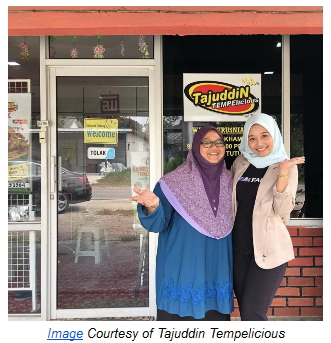Accelerated disruptions in supply chain, decreased demand and consequential effects of affected sectors on employment are challenging economies across the world, including Malaysia’s. Despite the impacts of COVID-19, we see many businesses pivoting to adapt to the new normal, reinventing the way they communicate, build and identify new growth opportunities.
In an ongoing partnership with the World Bank and OECD, Facebook released a research report titled the “State of Small Business” which surveyed SMBs across 50 countries and regions during COVID-19 to capture the economic impact and adjustments being implemented in response to the crisis. The objective of this research is to amplify the voice of SMBs and assess how their situations are changing.
Key findings from Malaysia include:
- In Malaysia, 42% of SMBs have reduced the number of employees as a result of the COVID-19 pandemic
- Less than half of Malaysia’s SMBs are optimistic with 47% saying they are confident about future prospects due to major issues brought on by the pandemic
- Cash flow was identified a primary concern with 63% of SMBs reporting lower sales compared to the same time last year, while 58% expect cash flow to be a challenge over the next few months
- Malaysian SMBs made serious efforts to adapt by moving operations online, with 44% of operational SMBs on Facebook reporting 25%, or more of their sales were made digitally in the past month
- Of those operational SMBs on Facebook, 64% are female-led while 80% are male-led in Malaysia
At , we understand that small and medium businesses (SMBs) are and will continue to remain the backbone of Malaysia’s economy. These businesses have always demonstrated resilience and agility, which is further amplified now during the current pandemic. Now more than ever, the research shows that Malaysian businesses are finding new ways to thrive in the digital landscape amid these difficult times.

Tajuddin Tempelicious, a local tempeh business is one of the many examples of women-led enterprises that have accelerated its digital transformation to remain sustainable and competitive in a post-pandemic era. As one of the participants of KBS-MDEC's eUsahawan Young Heroes Programme, founder Noorasliyati Sukiman shared that 80% of her orders come from advertising her products on Facebook Marketplace, Instagram and WhatsApp. “Social media platforms like Facebook have created so many opportunities for many businesses to expand overseas. Since I started digitalising my business, I have managed to expand outside of Johor to other ASEAN countries including Singapore and Brunei; and to Europe and the Middle East”. Noorasliyati reveals that she had to expand the capacity of her operations due to the rise in demand for her products with sales increasing by 100%. Today, with savvy digital skills she is looking to expand her business to more countries in Asia with the help of 15 agents and 5 employees under her belt.
Tajuddin Tempelicious is just one example of a SMB in Malaysia that is using technology and social media to connect with customers and supply networks, helping them recover from the challenging macro environment.
For more information on this, please see HERE or you may find the full report HERE with an infographic for your usage.



